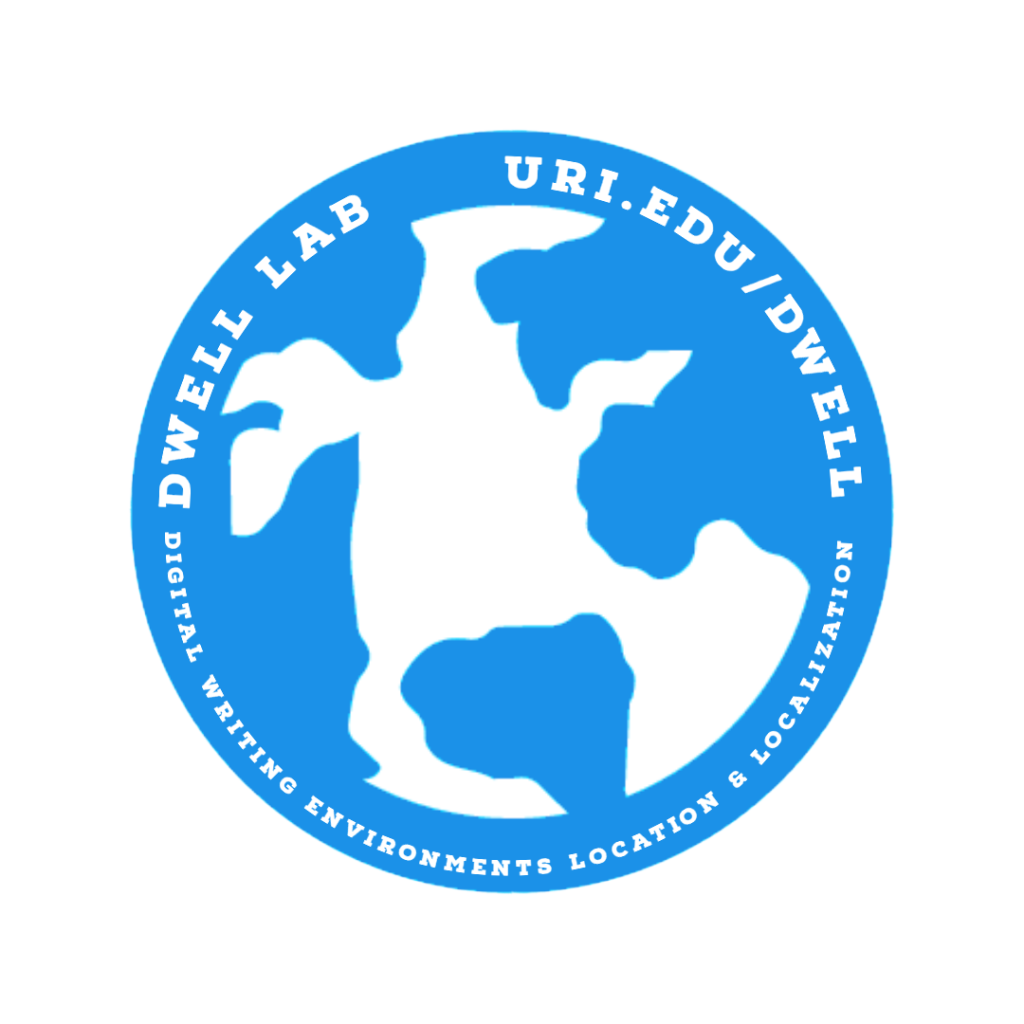Request for Proposals: DWELL Graduate Student Research Grants
Open to all URI gradate students (separate fellowships are available at the undergraduate level). Deadline: March 1, 2025 (we encourage early submissions). [Note: starting in 2024, the deadline has been shifted forward from previous cycles.]
This is our third year of funding. To see information about the projects funded in previous cycles, please visit our News Page:

The Digital Writing Environments, Location, and Localization (DWELL) Lab, in collaboration with the departments of Natural Resources Science (NRS) and Professional & Public Writing (WRT), invites undergraduate and graduate students at the University of Rhode Island to apply for the Richard S. Wilkes DWELL Mini-Grant. The goal of supporting this research is to promote public science communication and scientific literacy. Proposed projects should develop research pertaining to the communication of science, including (though not limited to) digital science communication, community-engagement with science, public interest and advocacy, science communication design, as well as technical and creative science writing. Proposals should endeavor to engage local communities and/or the public in science through creative methods and/or emerging communication technologies and/or tactical approaches to debunking misinformation with science. Applicants should clearly address how their proposed project will promote public engagement with science.
Individual proposals will be awarded up to a maximum of $1,500 (though projects with smaller grants budgets are welcomed). The DWELL Grants committee will fund a total of $1,500 each year in the form of at least one grant (depending on individual proposal budgets). As part of the award, students will be invited to become DWELL Lab Affiliates.
Areas of inquiry include
Particular topics and areas of interest include but are not limited to:
- Digital science communication
- Science storytelling
- Public & community engagement with science
- Social media analysis and data visualization
- Combating misinformation
- Public Interest Campaigns
Examples include
- Digital maps that visualize complex scientific information for the public
- A citizen science project that involves a local community
- A creative writing project based in science
- A visual design or social media campaign engaging the public
- An AR experience or VR installation communicating scientific findings
- A podcast mini-series devoted to communicating scientific topic(s) to the public
- Data mining and analysis of a trending scientific topic
Organization of the Proposal
Applicants should submit a 2-3 page proposal (single spaced, 12-point font, 1-inch margins) containing the following in .PDF format:
- Cover Sheet: Include applicant name(s), institutional status (graduate/undergraduate), and contact information (the cover sheet does not count towards the page limit). Please include the cover sheet as a separate document from the other parts of the application. Following the cover sheet, all documents should be anonymized for review, containing only the project title and removing the student’s name and identifying information.
- Abstract: In approximately 200 words, provide an overview, summary, and description of the proposed project.
- Project Description: A detailed overview and description of the project, with specific language about how the project will engage the public in scientific communication.
- Statement of Significance: A discussion of the significance of the project for science communication, attending to its impact on specific communities or groups.
- Methodology: A description of the methodology, methods, and research tasks that will be involved in the project.
- Timeline: An annotated project timeline describing all major tasks required for the project.
- Budget: A projected budget for the project, explaining how funds will be used for the research tasks, including materials, software, and travel for data collection and travel to present findings.
- Statement: A statement that the researcher(s) understand and are willing to adhere to the requirements of the grant recipient outlined below.
Grant Recipient Requirements
Any additional publications or presentations resulting from the funded research should acknowledge grant support for the related project. Funded projects should be completed within 12 months of award receipt and a final report submitted by October 1st of the following year.
Guidance and Questions
The DWELL Grants committee encourages applicants to contact them to discuss projects prior to the funding deadline. Please contact Dr. Madison Jones (madisonjones@uri.edu) if you wish to discuss your project.
Application Procedures
Proposals are to be submitted no later than 11:59 p.m. EST on March 1 for full consideration. Email the cover page and combined proposal documents as as PDF attachments to madisonjones@uri.edu with the subject line “DWELL Mini-Grant Proposal.” Decisions will be announced by April 1.
Eligibility
Applicants must be currently enrolled as either undergraduate or graduate students at the University of Rhode Island. Applicants may submit only one research proposal per award cycle, and projects which have previously received funding from this award are not eligible for a second application.
